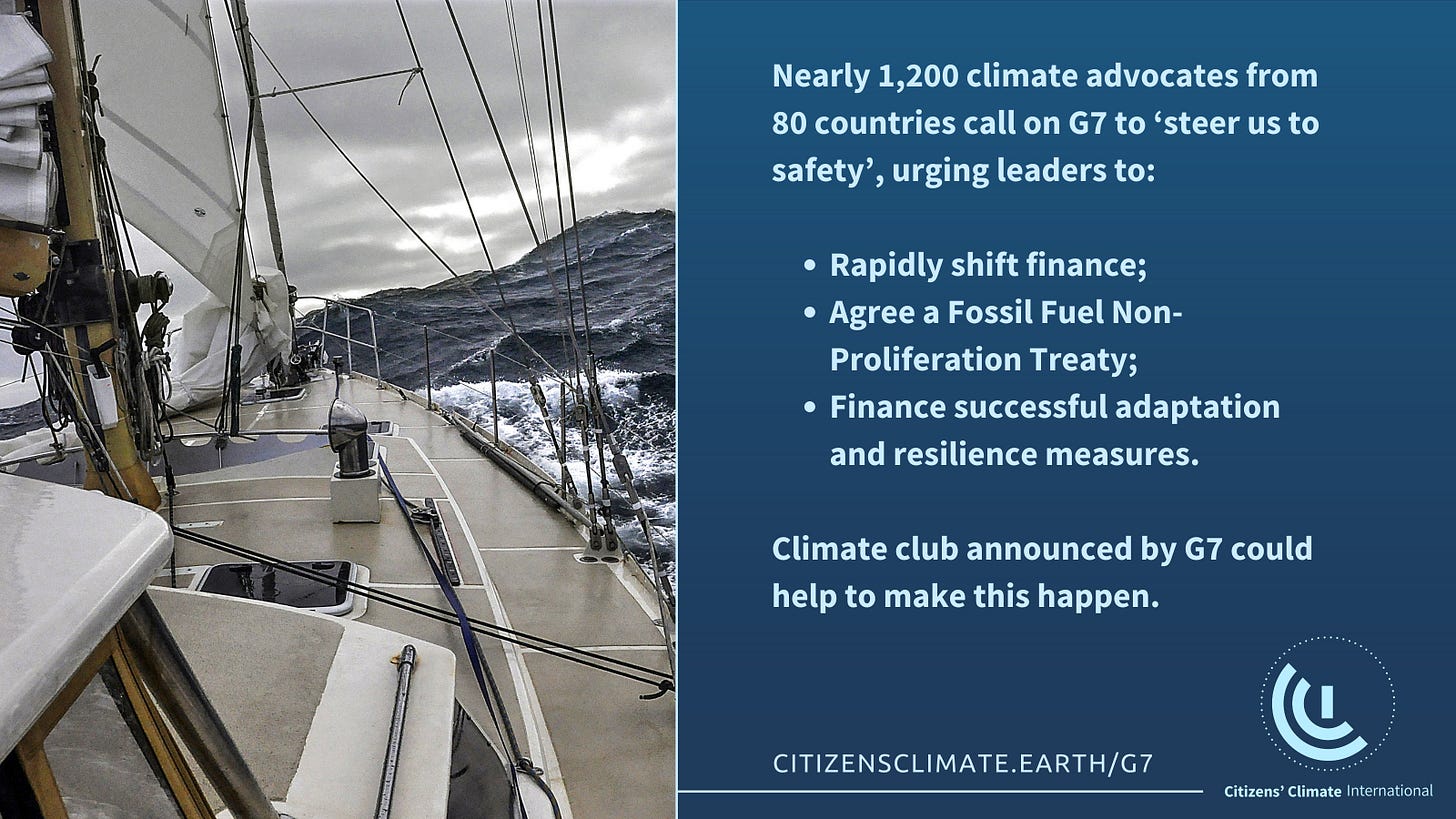The right to choose a better future is under attack
Democratic institutions around the world are under stress. People in a diverse range of socio-political contexts are experiencing a breakdown of trust. Disinformation is a major force in driving that breakdown of trust, but so is the escalating inequality, adversity, and disempowerment people experience day to day.
Russia’s illegal invasion of Ukraine, and the seemingly nonstop news about atrocities being committed by the invading forces, are an attack on human rights, personal and collective sovereignty, democracy, and international law. In support of this illegal war, Vladimir Putin has instituted laws to impose long prison sentences on people for reporting even basic facts about the war.
As we noted in CCI’s Earth Day statement:
Authoritarian systems allow power-holders to control and conceal information. This makes it harder for the society to use knowledge to advance solutions, and it deprives people of basic and universally recognized rights. There is a right to know, and to act on knowledge, for the defense of human health and the improvement of the human condition.
Those basic rights are under attack in advanced democracies as well. Corrupt and extremist politicians are using disinformation as a weapon to undermine people’s access to evidence, to subvert their ability to hold public officials and industry accountable. This is not only a question of democratic process and practice; this kind of information corruption disables mechanisms designed to protect human rights and makes it far more difficult for societies to solve serious problems effectively.

The month of June brings an intense series of meetings and negotiations through which we could establish the foundations for a better future for all of humankind.
The Stockholm+50 Conference was an opportunity to act on the internationally recognized human right to a clean and healthy environment, and to signal that the shift to a clean future is irreversible.
The SB56 round of UN Climate Change negotiations in Bonn provide an unprecedented opportunity to review “non-market” cooperative approaches to driving that shift in the most economically vibrant way possible. Important breakthroughs were achieved, but far more needs to be done to overcome loss and damage and to secure a future of climate resilient development.
The World Trade Organization must address macrocritical forces that are creating emergency-level crisis now, while also setting the course for a sustainable future of trade and development.
The Global Crisis Response Group on Food, Energy, and Finance, has issued its 2nd global crisis brief to address the worsening global cost of living crisis, and the impact of the invasion of Ukraine and worsening food insecurity.
The Good Food Finance Network is activating five Catalyst Groups to focus on technical challenges and needed multi-scale innovations to mobilize finance for healthy, sustainable food systems.
The UN Ocean Conference in Lisbon seeks to motivate governments and industry to adopt sustainable standards and practices that protect the marine biosphere.
The G7 Leaders Summit in Bavaria must find ways to consolidate global unity against war crimes and authoritarian abuses, while reducing hunger and poverty and mobilizing new modes of sustainable finance.

Citizens’ Climate International helped advocates from 80 countries deliver letters to the G7 Leaders calling on them to steer us to safety, by:
Rapidly redirecting financial flows away from fossil fuels and towards an equitable and resilient future, in line with the Net Zero Scenario from the International Energy Agency (IEA);
Negotiating the Fossil Fuel Non-Proliferation Treaty to complement the Paris Agreement and financially support a rapid, equitable and managed phase-out of fossil fuels;
Financing successful adaptation and resilience measures to keep vulnerable communities safe from preventable harm.
Multiple converging crises are putting human wellbeing at risk in every region. Vulnerable communities in the wealthiest countries are seeing their prospects eroded, as income inequality worsens, and the global cost of living crisis makes everyday necessities more scarce and more costly.
Open societies are vital instruments for the improvement of the human condition and for intelligently addressing the most complex challenges. In May, we issued a statement in defense of open societies, in which we noted:
“To tackle the biggest challenges we face, we must recognize and defend the right of all people to know whether any given decision is likely to lead to greater health, freedom, and dignity in everyday life, or to degraded human outcomes—personally, locally, or globally. The right to know is essential, and every person is an actual stakeholder and a legitimate actor in the landscape of knowledge sharing and problem solving.”
When the Supreme Court of the United States issues rulings in late June on pollution control, access to healthcare, the right to redress, and other basic human rights, the majority must meet the moment, by prioritizing the rights of the vulnerable over the desire of powerful interests to be unconstrained by the demands of justice. The future of human freedom, rights, and dignity, in the United States and around the world, may depend on whether they favor the protection of basic rights.
UPDATE: July 1, 2022
Supreme Court fails test of legitimacy
The current ideological majority of the Supreme Court is facing a deep and complicated crisis of legitimacy.
Three justices were named to the Court by a President who actively supported a violent attack on the Congress and the Constitution.
All three of them also came to the court by means that raise serious questions about process legitimacy.
Four justices were confirmed by a Republican Senate majority that won fewer votes than the Democratic minority.
Five of the justices were named to the Court by Presidents who came to office losing the popular vote.
Meanwhile, public authorities have failed to curtail waves of mass death from COVID, opioids, firearms, and reckless driving.
And, in direct violation of the Preamble mandate, federal authorities are allowing the “Blessings of Liberty” to be eroded by global heating pollution.
The late June series of rulings was an opportunity for the Court to regain legitimacy by holding to the Constitution’s mandate to treat the rights of the vulnerable as holding more weight than the desires of powerful interests. They failed to meet the moment and took actions so brazen, many experts believe they have abandoned their sworn loyalty to the Constitution.
In the Vega case, they rolled back Miranda rights, inviting rights abuses by police and potentially creating chaos in the criminal justice system.
In the Bruen case, they claim to limit the authority of states and municipalities to control the spread of firearms in communities.
In the Dobbs case, they effectively ended full legal personhood for women—a clear breach of their duty as sworn judicial officers of the Constitution.
In the West Virginia case, they callously removed a critical tool for countering pollution and protecting vulnerable communities, without offering any replacement.
Because the West Virginia case also deals with the cross border climate issue and the nation’s ability to meet international commitments made Constitutional law by Article VI, it will degrade the nation’s standing on the world stage.
They have curtailed the sovereign rights of Native American tribes, in apparent dismissal of binding treaties, and signaled they might grant state legislatures the power to choose a different candidate than the voters of their state have chosen.
In case after case, an ideologically extreme majority of Justices whose own legitimacy is questioned by most Americans has ignored or misrepresented key provisions of the Constitution, lied about evidence, and subverted the protection of basic rights. So shocking has been the speed and scale of the changes they attempt to impose on American jurisprudence, advocates for democracy worry this week of rulings could embolden autocrats and put lives and freedoms at risk around the world.
We will follow up with further news about the implications of these rulings. What is clear is the American people and the elective branches of government must find a way to:
Require in federal law the active protection of basic rights;
Mandate the Supreme Court abide by a strict judicial code of ethics;
Protect the right to know—to access knowledge and use it to design a better future;
Bring about the end of the reign of polluting interests;
Secure full legal personhood and bodily autonomy for all.

